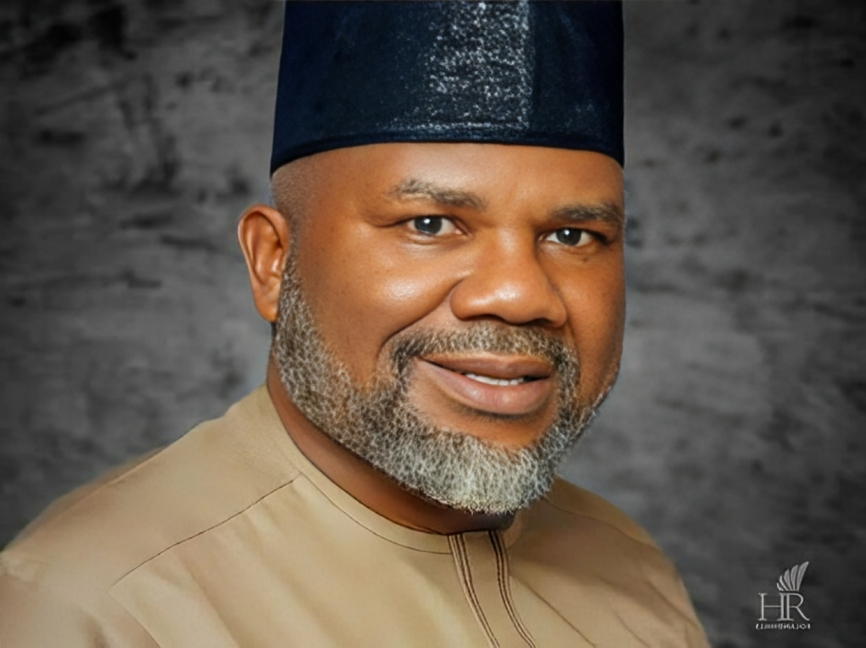
Photo from centerforurologiccare
Experts have called for more people to utilize family planning to curb the nation's fast-growing population. Some Nigerian men, however, have sworn that they will not undergo vasectomy, a male birth control method.
PUNCH Healthwise found that these men are concerned about declining testosterone levels and sex drive. Some are particularly concerned that they may develop erectile dysfunction following a vasectomy.
MSI Nigeria Reproductive Choices, one of the foremost providers of sexual and reproductive health care services to communities, explains that vasectomy, or male sterilization, is a safe, effective method of permanent birth control for men.
"A vasectomy is a simple procedure performed by our skilled medical practitioners to block sperm from reaching the semen. During the procedure, the small tubes in the scrotum that carry the sperm are cut or blocked, stopping the sperm from exiting the body and causing pregnancy," reads an NGO post on its website.
The men interviewed acknowledged that while vasectomy is an effective way of avoiding pregnancy, most were opposed to undergoing the permanent procedure.
Family planning is a key issue in Nigeria, with a high total fertility rate of 4.6 children per woman.
The 2018 Nigerian Demographic and Health Survey reports that just 10 percent of married men in Nigeria utilize current family planning methods, and vasectomy has limited usage.
Most of the men who shared their concerns with PUNCH Healthwise said that there were less invasive alternatives to family planning that respected their personal, cultural, and religious beliefs, but they were not in favor of undergoing a permanent surgical procedure.
The Mayo Clinic, a respected medical website, confirms these facts about vasectomy and its effectiveness as a permanent birth control method.
The procedure is often mentioned when talking about family planning because it offers a long-term option for men who are sure that they do not require having any children or already have sufficient offspring.
In interviews with PUNCH Healthwise, the men strongly expressed their preference for alternative birth control methods such as condoms, withdrawal, and natural family planning over vasectomy.
They also cited fear of permanent infertility and a reluctance to tamper with the natural order as reasons they will not embark on permanent surgery to block their sperm from fertilizing. One person who answered, Dare Olawin, said that a man having surgery to change his reproductive system goes against how things are naturally meant to be.
"I disagree totally with that kind of family planning," he declared. "I do not condone it, I do not like it, and I do not believe that a man ought to have surgery to remove something from his scrotum simply for family planning," Olawin said that women have other ways of planning families, like pills and injections.
Men can use condoms or other forms of contraceptives instead of undergoing surgery. He also said he was worried that women would choose vasectomy to make their partner faithful. "Women can do that; women can take pills and have injections to avoid pregnancy. Men can use condoms, birth control, and other things rather than go for surgery," he continued.
Michael Babatunde continued to state that he thinks changing the mechanism of sperm movement would create unintended problems.
He stated that defensive methods such as condoms or withdrawal are lesser invasive and a safer choice than surgery
"I will not be in favor of that at all. I think that when you try to change nature, it is normally dangerous."
"When you block the route where sperm travels just because you don't want to fertilise a woman's egg, it might be dangerous. Even though there is no medical evidence for this,
I think something might go wrong," he said. Babatunde believed that men can make mature choices regarding their fertility, but he would not undergo a vasectomy himself.
It's a responsible thing for men to do to take care of their fertility," he said.
Adejola Adeyemi was aware that vasectomy is an excellent choice for family planning, yet he was worried that it's permanent.
He volunteered, "As a man, I think a vasectomy is a logical choice for family planning, but I might not take it because it is permanent. You never know about life, and while I'm certain now of the number of children I'll have, a tragedy like losing a child would make me want to reconsider that."
Adeyemi illuminated that adaptive family planning is mostly needed because life is full of doubts.
He highlighted that he was curious about options that are offered as a suppleness and not a permanent option, such as a vasectomy.
He continued, "The potential for not being able to have children in case something were to happen to me is what is keeping me back. There is also the way culture and society view this that is most likely deterring some men from doing this."
"I believe men must take charge of their own fertility and help with family planning," he said. "
"But I myself would like a flexible method, for the future cannot be certain," he added. "
The World Health Organization believes family planning is an intrinsic human right. Family planning services are central to gender equality, poverty alleviation, and improved health.
John Olanrewaju also concurred, citing that he has religious grounds for opposing vasectomy. "My religion does not permit anything that is anti-life," he said. "We are pro-life, and therefore, anything artificial to prevent pregnancy, abortion, or kill a life is contrary to my religion and my faith, so much so that I do not even use condoms."
Olanrewaju underscored that he uses natural family planning, and for him, it has been working well for him and his wife.
"We do natural family planning, and we were successful at it. Through self-discipline and patience, we can do it because only God gives children; we cannot say that we can create people or refuse life." "Nor is my wife doing any family planning. So that, as it may be, is against my religion. I cannot do a vasectomy since it is against life, and it is like playing God by saying you wish to plan a family and whatnot," he continued.
He expressed concern that a vasectomy goes against nature and God's will. He went on, "More sensibly, I don't think that it is a good idea for a man to tie up the instrument that sperm comes out of in order to fertilize the woman's egg. I don't think it is good. Somebody has to take into consideration that anything can happen in this life; it is not a good thing to go against the will of God or nature."
"I don't think it is right for anyone to play God regardless of what or how many kids we are going to have; we can have them, and if we are not going to have them, we cannot have them." Olasukanmi Akinlotan has no problem saying he does not support vasectomy, branding it an extreme procedure.
"An emphatic no" is his reaction, he responded succinctly when questioned on whether he opposed the procedure. Akinlotan feels there are simpler ways of planning a family, and he is not of the opinion that something permanent should be required. "Why do I have to cut off my sperm surgically? Such choices are extreme for me," he added.
In the meantime, a doctor of public health, Dr. David Ogunsanya, offered a more clinical view of vasectomy, citing its advantages.
Though both agreed that vasectomy is not ideal for every man, the physician cited its advantage for men who are sure of their desired family size.
"Vasectomy is a relatively under-researched and under-utilized form of contraception. Vasectomy is a safe, effective, long-term contraceptive method that is 99.9% effective as a contraceptive against pregnancy," he said.
The doctor, nonetheless, listed misinformation and negative attitudes as the main obstacles to its general acceptance.
He also emphasized that such general myths, like the perception that vasectomy has a negative effect on a man's libido, are generally baseless. There may also be misinformation about vasectomy being a reason why men who had not had a vasectomy had more negative attitudes towards possible changes to their sex life, the operation, and the recovery."
"Men can think a vasectomy makes them lose their sex drive, and it is a very serious concern for men." Similarly, expectations of the procedure and recovery can be driven by perceptions that a vasectomy is invasive, painful, or disabling. Yet, most vasectomies are no-cutting, outpatient procedures utilizing only local anesthesia and requiring approximately 15 minutes.


















